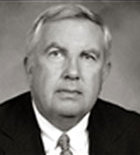A Quote by Michelle Obama
I've seen how the issues that come across a president's desk are always the hard ones - the problems where no amount of data or numbers will get you to the right answer.
Related Quotes
You can never predict what kind of tough decisions are going to come in front of a President's desk. But if you can trust they will do the right thing, and maybe the hard thing, and maybe not the popular thing, and if you really want to know how a person will operate, look at how they've lived their life.
I've never run across anybody who suggested that women need to be reprogrammed. I don't think I've even come across anybody who wanted to teach a girl how to throw right. They just accept it is what it is. But honestly, folks, it's always reprogramming men. It's always men who seem to provide or be at the root of all of these cultural problems. And if we could just make men less like men and more like, I guess, women, then we would be rid of all of these problems.
Any time scientists disagree, it's because we have insufficient data. Then we can agree on what kind of data to get; we get the data; and the data solves the problem. Either I'm right, or you're right, or we're both wrong. And we move on. That kind of conflict resolution does not exist in politics or religion.
There was a sergeant at a desk. I knew he was a sergeant because I recognized the marks on his uniform, and I knew it was a desk because it's always a desk. There's always someone at a desk, except when it's a table that functions as a desk. You sit behind a desk, and everyone knows you're supposed to be there, and that you're doing something that involves your brain. It's an odd, special kind of importance. I think everyone should get a desk; you can sit behind it when you feel like you don't matter.
































